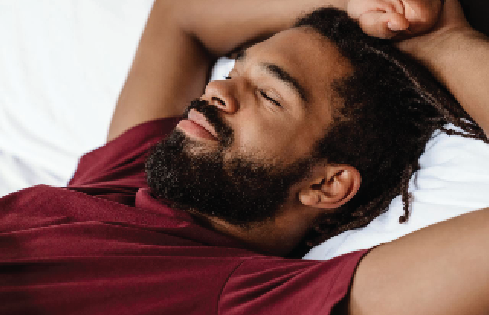Prime
To rip the benefits of exercise, you must sleep

Sleep aids in fitness because it is during sleep that the body rebuilds cells. PHOTO/COURTESY
What you need to know:
- Sleep gives your body time to recover, conserve energy, and repair and build up the muscles worked during exercise.
Adequate sleep is as important as exercise when it comes to health and wellness. Both help us to stave off poor health, promote a healthy weight, lower the risk of illnesses such as diabetes and heart disease. They also help reduce stress and improve mood, think more clearly and do better in school and at work.
An interesting question to ask is if sleep is crucial to fitness and vise versa. The short answer is yes, according to experts. Getting adequate sleep promotes better results from workouts on one hand and exercise promotes better sleep on the other.
How adequate sleep helps workouts
According to Dr Moses Fisha Muhumuza, the chief of Orthopedics at CoRSU Rehabilitation Hospital in Kisubi, sleep aids fitness because it is during sleep that the body rebuilds cells that are damaged during exercise.
“Sleep must be adequate for this to happen. If you do not get adequate sleep, your tissues will not repair and you will not hit your fitness targets,” Muhumuza says.
Muhumuza says adequate sleep differs from person to person. While the standard image most people get when they hear of adequate sleep is eight hours, Muhumuza says adequate sleep ranges between four and eight hours. Some people will feel fully rejuvenated after four hours while others will still feel fatigued at seven hours of sleep, according to the doctor.
“So, depending on what adequate sleep is to you, make sure to get it when you start your fitness journey, and you will be on a path to hitting your targets,” he says.
Muhumuza says when we exercise, the mitochondria in the cells (vital organelles that provide energy for muscle function) become active and produce more energy, leading to muscle growth. He adds that without adequate sleep, there will be oxidative stress build up, causing cell damage and the development of a range of health conditions, including diabetes and cancer, among others.
Motivation
According to Everyday Health an online health magazine, the better rested you are, the better your mind and body function. According to a study referenced by the site, adequate sleep has been shown to help motivate people to stick to their exercise plans and work out the next day. The more sleep time individuals in the study got, the more likely they were to complete their exercise regimen.
“Getting enough sleep will not only give you more drive and strength to maximise your workout, its effects on concentration, mood and focus can make you more efficient and better prepared for that workout,” experts say.
No sleep, harder to exercise
On the flip side, experts say not getting enough sleep can actually make exercise feel harder. Sleep deprivation will not affect your cardiovascular and respiratory responses to exercise, aerobic and anaerobic performance capability, muscle strength, or electromechanical responses. That means biomechanically, there is no reason sleep will lessen your physical capabilities. But you will get tired faster on less sleep, making it feel tougher to work out to your maximum capacity.
Studies have shown that, in fact, even after just one night of not sleeping, endurance performance on a treadmill decreases, the likely reason being that it feels so much tougher to exercise without enough sleep.
“We exercise for a purpose; for cardiovascular health, to increase lean muscle mass, to improve endurance, and more. All of these ‘goals’ require sleep,” says Christopher Winter, a doctor quoted by the magazine.
Without adequate sleep, exercise does not deliver those benefits, Dr Winter explains.
Growth hormone
Sleep does not just give your body time to recover, conserve energy, repair and build up the muscles worked during exercise, it also communicates to the body to produce the growth hormone, according to experts.
During childhood and adolescence, the growth hormone makes us grow taller and bigger. And when we are older, it helps us build lean muscle and helps our body repair after a hard workout. And it is produced when we get adequate sleep regularly.
It appears that if one wants to get fit, one must stay away from a lifestyle that hinders one from getting adequate sleep. That means that activities that cause you to have less rest at night such as staying out till too late regularly are your enemy. Getting inadequate sleep while trying to get fit is counterproductive.
Improving sleep through diet and exercise
While most people know that diet and exercise are two important ways to improve their health, sleep is often overlooked. Sleep hygiene, which involves habits that promote quality sleep, can be a starting point for improving your sleep.
● Do not eat too late: Be sure to give your body time to digest after eating large meals. Try having dinner earlier in the evening.
● Avoid caffeine: Beware of stimulants such as coffee, energy drinks and soda. If you do consume these, try to limit them to early in the day.
● Move your body: Schedule regular exercise to improve your sleep. While any movement during the daytime is beneficial, aim to get regular, moderate exercise a few days a week. Try to avoid working out too close to bedtime, giving your body a couple hours after working out to wind down before bed.
● Get natural light: Try exercising outdoors, as exposure to natural light during the day can help keep your body in sync with its natural sleep rhythms.




